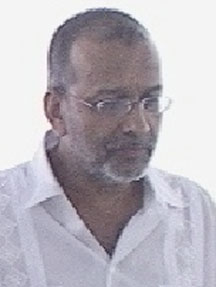Guyana will have to determine if it will be cost-effective to take up Trinidad and Tobago’s offer to aid the country in regaining its Category 1 aviation status, according to Director-General of the Guyana Civil Aviation Authority (GCAA) Zulfikar Mohammed.
“What was promised… was they are willing to assist… of course, it’s going to be for a fee. So, we have to know what is the cost in the long term,” Mohammed told Stabroek News.
Director of the Trinidad and Tobago Civil Aviation Authority (TTCAA) Ramesh Lutchmedial last week offered his country’s assistance to Guyana in enabling it to regain the aviation rating so that it may be able to benefit from the United States-Guyana Open Skies agreement.
“I would just like to reaffirm the offer of the Trinidad and Tobago Civil Aviation Authority to assist Guyana in achieving FAA [Fed
eral Aviation Authority] Category 1 status because that means that any Guyanese carrier certificated can fly into the United States and exploit the recently-signed Open Skies agreement,” he said at the official certification of the Ogle Airport as a regional class facility last Tuesday.

The “Open Skies” agreement, signed last week by Minister of Transport Robeson Benn and US Ambassador Brent Hardt, is intended to encourage more competitive services among airlines to benefit both the travelling public and businesses shipping cargo between the two countries.
While Guyana once held Category 1 status, it was downgraded by the United States’ FAA in 2002 as the country had failed to meet specified regulations. According to the FAA, in order to maintain a Category 1 rating, countries with air carriers that fly to the United States must adhere to the safety standards of the International Civil Aviation Organisation (ICAO), the United Nations’ technical agency for aviation that establishes international standards and recommended practices for aircraft operations and maintenance.
The FAA’s assessment is done using the ICAO reports and an independent one conducted by its experts. It assesses a country’s civil aviation authority to see if it complies in all aspects, such as licensing and overseeing air carriers, with the ICAO aviation safety standards. Specifically, the FAA determines whether a foreign civil aviation authority has an adequate infrastructure for international aviation safety oversight, as defined by ICAO standards. The basic elements that the FAA considers necessary include laws enabling the appropriate government office to adopt regulations necessary to meet the minimum requirements of the ICAO.
Mohammed said that Guyana’s problem comes in terms of regulations and staffing. “We are a little bit deficient in terms of regulations and staffing, that is the problem, especially the flight operators,” he explained.
Lutchmedial said that the TTCAA would offer to Guyana its trained aviation security experts. “We will make those inspectors available to your country to help you in this effort,” he said.
While in its present Category 2 status, carriers from Guyana will be permitted to continue operations at current levels under heightened FAA surveillance. Expansion or changes in services to the United States by such carriers are not allowed in this category although new services will be permitted using aircraft wet-leased from a duly authorised and properly supervised U.S. carrier or a foreign air carrier from a Category 1 country, such as Trinidad.




